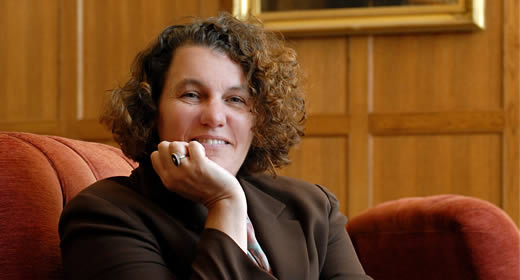
College access has been getting a lot of buzz, but getting more people to enroll in higher education is only the first step. Helping people graduate is proving a larger hurdle, something the House Committee on Education and Labor’s Subcommittee on Higher Education and Workforce Investment has decided to investigate. On May 9, 2019, they invited experts, including Professor Susan Dynarski, to give testimony on the topic titled “The Cost of Non-Completion: Improving Student Outcomes in Higher Education.”
Dynarski began her testimony describing the vast difference a college degree can make in a person’s life, from higher wages to lower unemployment. However, for “non-completers,” their earnings “more closely resemble those of high school graduates than of college graduates,” an issue exacerbated by the fact that they make up the majority of those who default on student loans. Dynarski said that this is a rising issue, as college enrollment has steadily increased but “degree attainment has stagnated,” leaving approximately 30 percent of adults with a B.A., and only 10 percent among lower income individuals.
So what can be done to lower dropout rates? Dynarski takes a holistic approach, since dropout rates are more than the result of students being ill-prepared academically. “A high performing student from a low-income family,” Dynarski stated, “is no more likely to graduate college than a mediocre student from a high-income family.” Financial insecurity is one issue, but school quality also plays a role. Dynarski said that while K-12 education gets the most policy attention, more should be paid to higher education institutions, saying “an affordable school is worthless, or even harmful, if it doesn’t provide a quality education.”
To watch the full testimony, click here.
Susan Dynarski is a professor of public policy, education and economics at the University of Michigan, where she holds appointments at the Gerald R. Ford School of Public Policy, School of Education, Department of Economics and Institute for Social Research and serves as co-director of the Education Policy Initiative.
More news from the Ford School